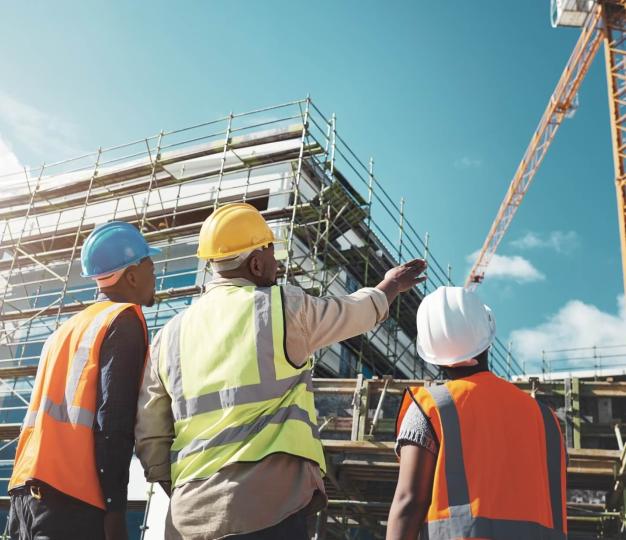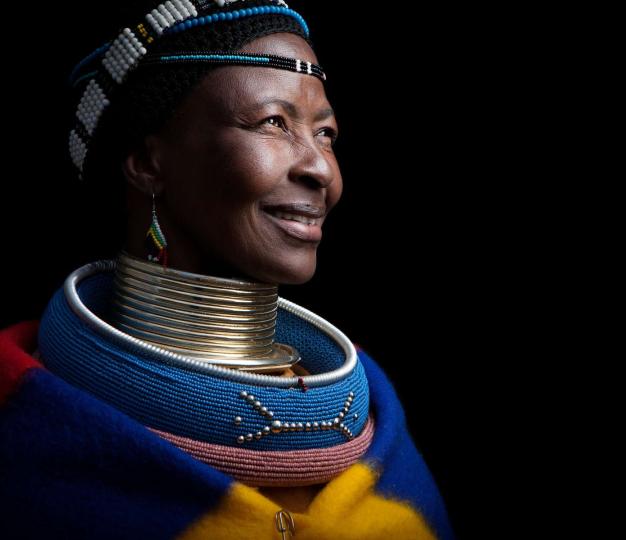Africa and the EU
Africa is a geopolitical priority for the European Union. This page contains information about the relationship between Europe and its sister continent, Africa.
En esta página
Africa - a continent of opportunities
Africa is a continent of opportunities. In all its diversity, Africa is home to over 1.4 billion people.
With the fastest-growing middle class in the world, more than 40% of Africa’s population is under 35 years of age.
Africa’s young people have the potential to transform their continent’s political, economic and social prospects. In particular, African women are key agents of sustainable growth, development and peace.
The EU is Africa’s leading partner in trade and investment, security, energy, the green transition, and digital transformation. Africa is the key geopolitical priority for the European Union thanks to our proximity, our common challenges and our shared history.
The four words that might best summarise the EU’s strategy for engagement in Africa are ‘peace, prosperity, people & planet’.
Peace
The EU has provided more than €3.5 billion for the African Peace and Security agenda. The European Union is an active partner for peace in the African continent with civilian and military training and security missions.
These missions have been invited, among other things, to advise more than 30 000 African military, police and judicial personnel, notably in the Sahel, Central Africa, Libya, Horn of Africa/ Somalia and Mozambique.
Training missions include specialized military training and maritime training and support to the rule of law. Transport and other equipment is provided thanks to the European Peace Facility (EPF).
- Around 2 000 European military personnel, police officers and civil servants work alongside their African counterparts
- 13 out of the 23 ongoing EU civilian and military missions are in Africa
- African countries, notably Egypt, Ethiopia, Ghana and Rwanda are major troop contributors
The EU is well aware that Africa needs ‘African solutions to African problems’. Sustainable solutions depend on positive support for African creativity to realise African visions, notably the idea of engaging women and youth in all parts and all levels of peace and political processes.
Prosperity
At the 6th European Union - African Union Summit the leaders agreed to consolidate a renewed Partnership for solidarity, security, peace and sustainable and sustained economic development and prosperity for our citizens and for our future generations, bringing together our people, regions and organisations.
Global Gateway
Global Gateway is the European strategy to boost smart, clean and secure connections in digital, energy and transport sectors, and to strengthen health, education and research systems across the world. Through a 'Team Europe approach', Global Gateway brings together the EU, its Member States and their financial and development institutions to mobilise the private sector to leverage investments promoting sustainable growth.
- For more information, follow the link to learn more about the Global Gateway and prosperity in Africa
People
Human development is at the heart of the Global Gateway. Because growth is dependent on an educated and skilled workforce, access to quality education and skills training for all nurtures economic growth.
At national level we invest in 43 countries and with a number of regional initiatives in Africa for teachers, youth mobility and vocational education and training. The Global Gateway invests in Africa’s knowledge-based economy.
Erasmus +
The highly successful Erasmus+ programme is an ideal way to promote youth exchanges and mobility. Scholarships and internships generate contacts and cooperation among young people on both continents through informal networks as well as programmes such as Youth Lab 3.0 and Africa – Europe Youth Academy.
Another area of activity is Vocational Education and Training (VET), which benefits new rewarding employment opportunities.
Migration
EU-African partner initiatives cover all aspects of the migration by addressing the root causes of irregular migration, strengthening migration governance and management, fostering cooperation on return, readmission and sustainable reintegration, fighting migrant smuggling and trafficking of human beings, and developing legal pathways.
A balanced common migration policy benefits migrants, countries of origin, and countries of destination.
Planet
Taken together, the EU and Africa are
- more than 1.9 billion people
- more than 40% of the UN’s membership
Fostering multilateralism is a joint responsibility. The EU and Africa are working together to shape the global agenda for the better, convening in multilateral fora such as the G20.
Europe and Africa are two Unions with one vision: The Joint Vision for 2030. This shared vision guides our two neighbouring continents, as partners for prosperity, for the people and for our planet.
The EU supports the AU’s ambition to play a stronger role on the regional and international stages, including in the G20 and the UN. The AU’s permanent membership of G20 is an opportunity for the whole African continent to represent its interests as we address global challenges all together.
Climate Change
The severe consequences of climate-change are increasingly apparent in both Europe and Africa. We work with African partners to move forward in implementing COP agreements which will bring tangible results.
The EU and its Member States (Team Europe) cooperate with Africa in the continent’s green transition through various programmes. They are also focused on Early Warning Systems (EWS), access to climate adaptation finance, and Climate and Disaster Risk Finance and Insurance (CDRFI) solutions.
The Samoa Agreement
The goal of the so-called ‘Samoa Agreement’ is to enhance the political cooperation between the Parties in the international scene, bringing together more than half of the UN members around shared priorities.
Signed in Apia, the capital of Samoa, the ‘Samoa Agreement’ is a Partnership Agreement between the EU and its Member States and the members of the Organisation of African, Caribbean and Pacific States (OACPS). Signed on 15 November 2023 as the successor of the Cotonou Agreement, it is being provisionally applied since 1 January 2024.
The agreement establishes the political and legal framework for the relations with the members of the OACPS in the next 20 years. It covers areas such as:
- human rights
- democracy and governance
- peace and security
- human and social development
- inclusive, sustainable economic growth and development
- environmental sustainability and climate change
- migration and mobility.
The agreement provides a common foundation for the OACPS signatories Parties, combined with three regional protocols for Africa, the Caribbean and the Pacific with a focus on the specific needs and priorities of each region.
For more information follow the links below:
- Press release: Samoa Agreement: EU and its Member States sign new Partnership Agreement with the Members of the Organisation of the African, Caribbean and Pacific States
- Samoa Agreement: EUR-Lex - 22023A02862 - EN - EUR-Lex (europa.eu)
- Joint report European Commission – AUDA-NEPAD: implementation of the 2030 vision (PDF)
- The Organisation of African, Caribbean and Pacific States (OCAPS) press announcement





